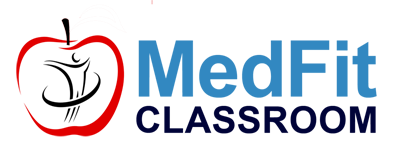More than 42% of Americans have obesity, with the prevalence in the US rising over 12% in the last 18 years.
Becoming an Obesity Fitness Specialist will equip you with the specialized knowledge to expand your services to effectively work with these individuals.
Course Introduction with Co-Authors,
Dr. Amy Bantham and Dr. Rachele Pojednic
More than 42% of Americans have obesity, with the prevalence in the US rising over 12% in the last 18 years.
Becoming an Obesity Fitness Specialist will equip you with the specialized knowledge to expand your services to effectively work with these individuals.
Course Introduction with Co-Authors,
Dr. Amy Bantham and Dr. Rachele Pojednic
The etiology of obesity is multifaceted and strategies for prevention and treatment are varied; specialized education for fitness professionals working with these individuals is critical.
The Obesity Fitness Specialist online course explores the biochemistry, metabolism, and pathophysiology of obesity as well as the multifaceted causes, myriad solutions, and the emerging data on weight bias and health at every size. A particular focus is paid to exercise prescription/referral and nutrition interventions in clinical and community-based settings to understand the benefits of weight loss and overall health and wellbeing.
Upon completion of this course, you’ll be able to choose and apply appropriate assessments while creating safe and effective programming to meet the unique needs of a client with obesity as well as recognize the role of the fitness professional in creating an inclusive environment that can lead to sustained client behavior change and health outcomes.
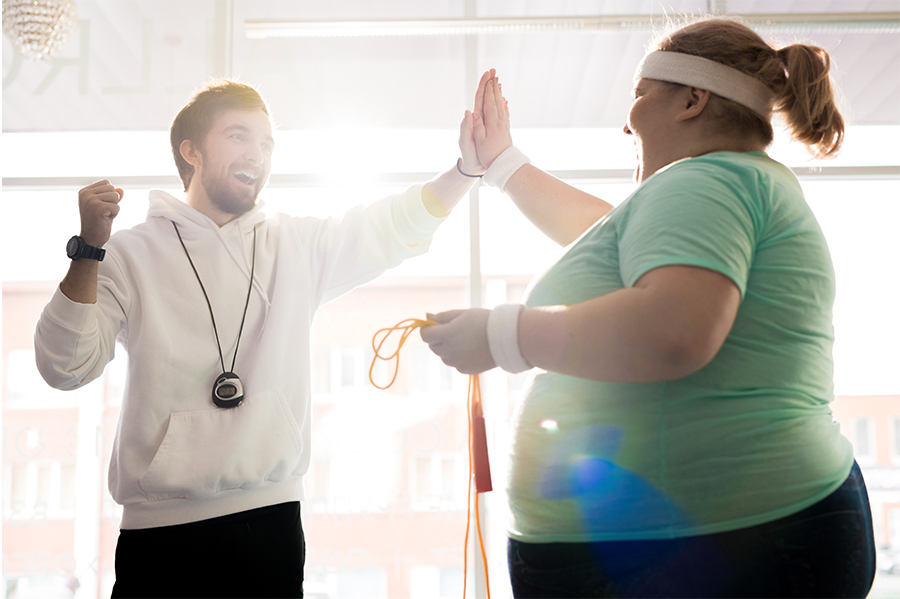
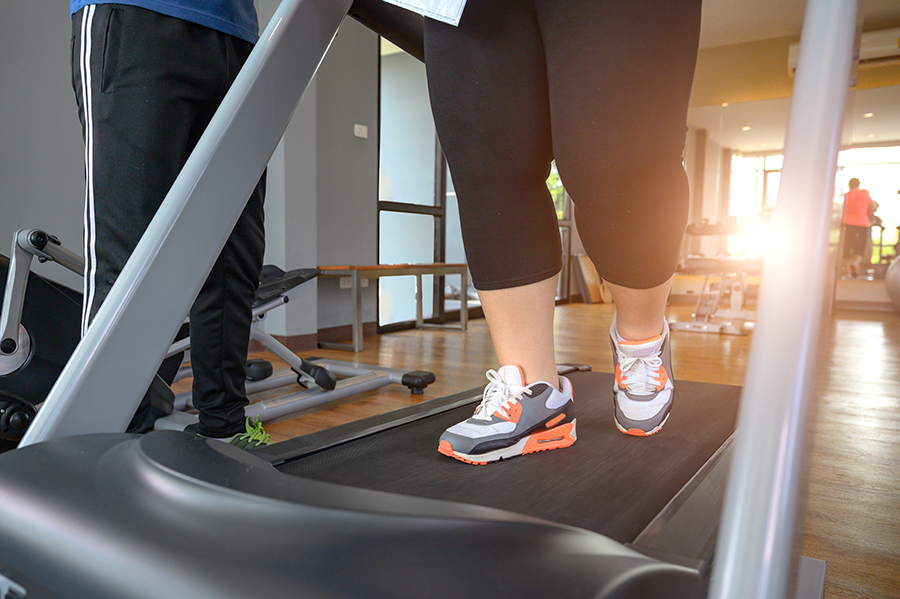
Obesity Fitness Specialist
Course Overview
- Module 1: Introduction to Obesity
- Module 2: Physiology of Adipose Tissue and Nutrition
- Module 3: Multifaceted Causes of Obesity
- Module 4: Multifaceted Solutions to Obesity
- Module 5: The Benefits of Physical Activity
- Module 6: Weight Bias and Stigma in Fitness
- Module 7: Positioning as an Obesity Fitness Specialist
- Module 8: Program Design for People with Obesity
- Module 9: Creating Inclusive Environments
- Module 10: Course Conclusion
Module 1: Introduction to Obesity
Lesson 1: Obesity and the Obesity Fitness Specialist
Lesson 2: Interview with Kelly Brownell, PhD, MS
Module 2: Physiology of Adipose Tissue and Nutrition
Lesson 3: Physiology of Adipose Tissue and Nutrition
Lesson 4: Interview with Linda Ayrapetov, MS, EdD(c)
Module 3: Multifaceted Causes of Obesity
Lesson 5: Multifaceted Causes of Obesity
Lesson 6: Interview with Fatima Cody Stanford, MD, MPH, MPA, MBA
Module 4: Multifaceted Solutions to Obesity
Lesson 7: Multifaceted Solutions to Obesity
Lesson 8: Interview with Sara Folta, MS, PhD
Module 5: The Benefits of Physical Activity
Lesson 9: Benefits of Physical Activity
Lesson 10: Interview with Kirsten Davison, PhD, MS
Module 6: Weight Bias and Stigma in Fitness
Lesson 11: Weight Bias and Stigma in Fitness
Lesson 12: Interview with Ashley Mitchell, MFA
Module 7: Positioning as an Obesity Fitness Specialist
Lesson 13: Positioning as an Obesity Fitness Specialist
Lesson 14: Interview with Michelle Segar, PhD, MPH, MS
Module 8: Program Design for People with Obesity
Lesson 15: Program Design for People with Obesity
Lesson 16: Interview with Jacqueline Meth, PT, DPT
Module 9: Creating Inclusive Environments
Lesson 17: Creating Inclusive Environments
Lesson 18: Interview with Ashley Mitchell, MFA
Module 10: Course Conclusion
Lesson 19: Obesity Fitness Specialist Course Conclusion
Lesson 20: Interview with William Dietz, MD, PhD
Competency Assessment: Obesity Fitness Specialist

Obesity Fitness Specialist Course Overview
- Module 1: Introduction to Obesity
- Module 2: Physiology of Adipose Tissue and Nutrition
- Module 3: Multifaceted Causes of Obesity
- Module 4: Multifaceted Solutions to Obesity
- Module 5: The Benefits of Physical Activity
- Module 6: Weight Bias and Stigma in Fitness
- Module 7: Positioning as an Obesity Fitness Specialist
- Module 8: Program Design for People with Obesity
- Module 9: Creating Inclusive Environments
- Module 10: Course Conclusion
Module 1: Introduction to Obesity
- Lesson 1: Obesity and the Obesity Fitness Specialist
- Lesson 2: Interview with Kelly Brownell, PhD, MS
Module 2: Physiology of Adipose Tissue and Nutrition
- Lesson 3: Physiology of Adipose Tissue and Nutrition
- Lesson 4: Interview with Linda Ayrapetov, MS, EdD(c)
Module 3: Multifaceted Causes of Obesity
- Lesson 5: Multifaceted Causes of Obesity
- Lesson 6: Interview with Fatima Cody Stanford, MD, MPH, MPA, MBA
Module 4: Multifaceted Solutions to Obesity
- Lesson 7: Multifaceted Solutions to Obesity
- Lesson 8: Interview with Sara Folta, MS, PhD
Module 5: The Benefits of Physical Activity
- Lesson 9: Benefits of Physical Activity
- Lesson 10: Interview with Kirsten Davison, PhD, MS
Module 6: Weight Bias and Stigma in Fitness
- Lesson 11: Weight Bias and Stigma in Fitness
- Lesson 12: Interview with Ashley Mitchell, MFA
Module 7: Positioning as an Obesity Fitness Specialist
- Lesson 13: Positioning as an Obesity Fitness Specialist
- Lesson 14: Interview with Michelle Segar, PhD, MPH, MS
Module 8: Program Design for People with Obesity
- Lesson 15: Program Design for People with Obesity
- Lesson 16: Interview with Jacqueline Meth, PT, DPT
Module 9: Creating Inclusive Environments
- Lesson 17: Creating Inclusive Environments
- Lesson 18: Interview with Ashley Mitchell, MFA
Module 10: Course Conclusion
- Lesson 19: Obesity Fitness Specialist Course Conclusion
- Lesson 20: Interview with William Dietz, MD, PhD
- Competency Assessment: Obesity Fitness Specialist
Limited Time Savings!
30% off the Obesity Fitness Specialist 10-hour online course.
Just enter coupon code OBESITY30 during checkout.
Coupon cannot be combined with other sales or offers.

More About this Course
Course Objectives
- Define obesity and identify risk factors and diseases associated with obesity
- Apply several methods used to classify obesity – including body mass index (BMI), circumference measures, and body composition – and discuss the indications and limitations of each
- Identify the multiple factors that contribute to development of obesityincluding genetics, biology, nutrition, and environmental interactions
- Define weight stigma/bias and subsequent detrimental effects
- Summarize the amount and type of physical activity recommended for overall health benefits and distinguish from movement strategies for weight management
- Explain the effect of sedentary behaviors on obesity and other cardiometabolic risk biomarkers
- Design and begin to apply safe, effective and inclusive programming important to successful client behavior change
- Demonstrate how to expand your client base by positioning yourself as a fitness specialist serving the needs of people with obesity
Module 1: Introduction to Obesity
Lesson 1: Obesity and the Obesity Fitness Specialist
Lesson 2: Interview with Kelly Brownell, PhD, MS
Module 2: Physiology of Adipose Tissue and Nutrition
Lesson 3: Physiology of Adipose Tissue and Nutrition
Lesson 4: Interview with Linda Ayrapetov, MS, EdD(c)
Module 3: Multifaceted Causes of Obesity
Lesson 5: Multifaceted Causes of Obesity
Lesson 6: Interview with Fatima Cody Stanford, MD, MPH, MPA, MBA
Module 4: Multifaceted Solutions to Obesity
Lesson 7: Multifaceted Solutions to Obesity
Lesson 8: Interview with Sara Folta, MS, PhD
Module 5: The Benefits of Physical Activity
Lesson 9: Benefits of Physical Activity
Lesson 10: Interview with Kirsten Davison, PhD, MS
Module 6: Weight Bias and Stigma in Fitness
Lesson 11: Weight Bias and Stigma in Fitness
Lesson 12: Interview with Ashley Mitchell, MFA
Module 7: Positioning as an Obesity Fitness Specialist
Lesson 13: Positioning as an Obesity Fitness Specialist
Lesson 14: Interview with Michelle Segar, PhD, MPH, MS
Module 8: Program Design for People with Obesity
Lesson 15: Program Design for People with Obesity
Lesson 16: Interview with Jacqueline Meth, PT, DPT
Module 9: Creating Inclusive Environments
Lesson 17: Creating Inclusive Environments
Lesson 18: Interview with Ashley Mitchell, MFA
Module 10: Course Conclusion
Lesson 19: Obesity Fitness Specialist Course Conclusion
Lesson 20: Interview with William Dietz, MD, PhD
Competency Assessment: Obesity Fitness Specialist
Course Delivery and Assessment
This is an online, self-paced course; all materials are delivered digitally. This course is delivered through a variety of digital mediums, including written material, video narrated slide presentations, videos of sample exercises, sample forms, and more. Comprehension of the material will be measured via a mandatory competency assessment requiring a minimum of 80% correct responses.
Prerequisites
All of the online courses on MedFit Classroom which lead to a Certificate of Specialization are considered advanced level education, and are meant to be taken by fitness professionals who have previously acquired education and experience as a professional within the health and fitness industry. In order for one to receive the Certificate of Specialization conferred upon those who obtain and complete this specialist course, one must be able to demonstrate that he or she has the following:
- Evidence of a current certification, or vocational credential, from a reputable certifying or credentialing organization, and within the health and fitness industry; OR an associate’s degree, or higher, from an accredited college or university in the field of exercise science, kinesiology, physical education, fitness, or a related field; AND
- Evidence of current professional liability insurance.
Renewal of Specialization
The completion of this specialization course, and the passing of its corresponding competency assessment, leads to a Certificate of Specialization. This Certificate of Specialization will be considered valid for a period of two years. To keep the certificate current, you must complete 10 hours of continuing education, on relevant subject matter, and formally renew the certificate prior to the date of its expiration. As with many certifications and specializations in our field, professionals should anticipate some costs to continuing education and renewal of this certificate.
MedFit Classroom CEUs
This Specialist Course provides up to 10 CEUs for other MedFit Classroom Specializations. Download our CEU chart (PDF) to find out what specializations it will provide credit CEUs for.
Other Continuing Education Credits
This course is approved for:
- 1.0 CEUs from ACE
- 4 CECs from canfitpro
- 10 CEUs from ISSA
- 1.0 CEU from NASM
If your certifying body is not listed, you will be provided with a Certificate of Specialization upon completing the course that can be used to petition your certifying body for credit. The MedFit Classroom team is happy to assist you with petitioning your own certifying organization.
About the Course Authors
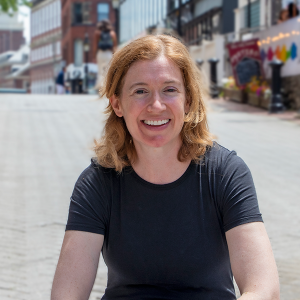 Dr. Amy Bantham has 20 years of experience working in consulting, health & fitness, and healthcare. She is the CEO/Founder of Move to Live More℠, a research and consulting firm addressing physical inactivity, obesity, chronic disease, and social determinants of health through cross-sector collaboration and innovation. With a mission to help people live healthier, longer, more active lives, Move to Live More℠ helps its clients with program design, implementation and evaluation, qualitative and quantitative research, case studies and best practices, strategic planning, coalition building, and translating research into policy.
Dr. Amy Bantham has 20 years of experience working in consulting, health & fitness, and healthcare. She is the CEO/Founder of Move to Live More℠, a research and consulting firm addressing physical inactivity, obesity, chronic disease, and social determinants of health through cross-sector collaboration and innovation. With a mission to help people live healthier, longer, more active lives, Move to Live More℠ helps its clients with program design, implementation and evaluation, qualitative and quantitative research, case studies and best practices, strategic planning, coalition building, and translating research into policy.
Amy holds a Doctor of Public Health from the Harvard T.H. Chan School of Public Health, with concentrations in Health Communication and Obesity Epidemiology & Prevention. Her doctoral research focused on physician exercise prescriptions/referrals and patient exercise behavior change. She is a certified group exercise instructor, personal trainer, and health & wellness coach. She also holds a Master of Science from Northeastern University, a Master in Public Policy from the Harvard Kennedy School, and a Bachelor of Arts from Yale University.
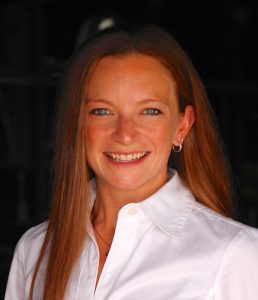 Rachele Pojednic, PhD, EdM is an Assistant Professor of Nutrition at Simmons University and a research associate at the Institute of Lifestyle Medicine, Harvard Medical School. Dr. Pojednic’s work has a specific focus on physical activity and nutrition interventions for the prevention and treatment of non-communicable chronic disease. She is also the founder of Strong Process, a Boston-based wellness education platform designed to integrate evidence based knowledge into the health and wellness space.
Rachele Pojednic, PhD, EdM is an Assistant Professor of Nutrition at Simmons University and a research associate at the Institute of Lifestyle Medicine, Harvard Medical School. Dr. Pojednic’s work has a specific focus on physical activity and nutrition interventions for the prevention and treatment of non-communicable chronic disease. She is also the founder of Strong Process, a Boston-based wellness education platform designed to integrate evidence based knowledge into the health and wellness space.
Dr. Pojednic received her PhD from the Tufts University Friedman School of Nutrition Science and Policy in Biochemical and Molecular Nutrition & Exercise Physiology. Her research at Tufts was completed in the Nutrition, Exercise Physiology and Sarcopenia laboratory at the USDA Human Nutrition Research Center on Aging at Tufts, where she was awarded the Ruth L Kirschstein National Research Service Award by the National Heart, Lung, and Blood Institute. While at Tufts, Dr. Pojednic examined the molecular interaction between human skeletal muscle and vitamin D as well as novel contributions of speed and velocity to overall muscular power with aging. Her current research examines lifestyle education for healthcare and fitness professionals and nutrition, supplementation and physical activity interventions on muscle physiology, chronic diseases and healthy aging.
Dr. Pojednic serves as co-chair of the American College of Sports Medicine (ACSM) Exercise Is Medicine® education committee, was the Interim Executive Director for the Prescription for Activity Task Force, and serves on The American Council on Exercise (ACE) Industry Advisory Panel. She also works with ACE to develop NBHWC approved health coaching curriculum for clinicians, fitness professionals and universities.
Dr. Pojednic has also been an active member of the fitness industry and cycling community for the past 15 years and is a Lululemon Ambassador, a former Specialized Women’s Ambassador as well as an indoor cycling instructor in Boston. She has been a consultant and writer for several organizations, including Time, Popular Science, Self, Shape, Women’s Health, Forbes, Runners World, and Boston Magazine.
